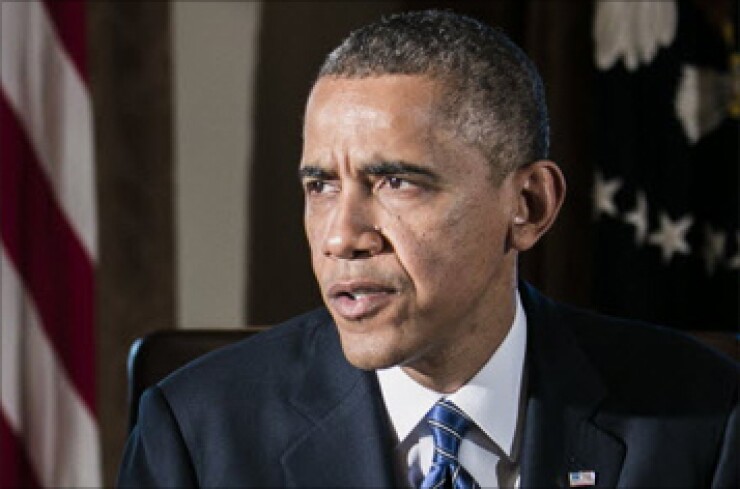
DALLAS — An agreement on funding new and modernized transportation infrastructure could be the basis of a bipartisan budget deal, President Obama said Friday at the Port of New Orleans in south Louisiana.
"We used to have a consensus in this country that investing in ports, airports, roads, and bridges were important to our economy," Obama said. "We need to get back to that. It's not a Democratic position or a Republican position."
Modern, efficient transportation systems are key to long-term economic growth, Obama said, and that requires increased investments in transportation infrastructure.
"We've got to move forward on these things together," Obama said. "We should be investing in ourselves. That's what we should be focusing on."
The U. S. needs to modernize its highways, ports, and airports to compete in a global economy, he said.
"Rebuilding our roads, bridges and ports will not only put Americans back to work, but also help to expand trade, keep American businesses competitive and create even more jobs here at home," he added.
Obama used the speech to push for his proposed infrastructure program, which would include investing $50 billion in the nation's infrastructure, most of which would go toward reducing the backlog of deferred maintenance, creating a $10 billion National Infrastructure Bank and authorizing America Fast Forward bonds. AFF bonds would be direct-pay, meaning the Treasury Department would make subsidy payments to issuers equal to 28% of their interest costs. The AFF bonds could be used for any projects that could be financed with tax-exempt private activity bonds.
Obama also wants to revive the Build America Bond program at a 28% subsidy rate, and authorize another $4 billion for Transportation Infrastructure Generating Economic Recovery grants and Transportation Infrastructure Finance and Innovation Act loans in fiscal 2014.
U.S. infrastructure investments currently about total 2% of the annual gross domestic product, Obama said, down 50% from spending levels in the 1960s.
"It is no coincidence that U.S. ports like New Orleans are facing new challenges and increased competition from our neighbors," he said.
Increasing exports through modernized U.S. ports is a major factor in economic growth, Obama said, using New Orleans as an example.
Recent federal investments at the city's port have made the transport of goods safer and cheaper, he said, as exports through New Orleans are up 140% from 2009.
The Port of New Orleans in 2011 received a $16 million federal grant through the Transportation Investment Generating Economic Recovery program to rebuild a rail yard at a riverside terminal. The U.S. Army Corps of Engineers has spent $230 million to dredge and otherwise keep traffic flowing through the Mississippi River valley over the past two years.
The Port of New Orleans currently is seeking federal funding for the dredging and infrastructure improvements needed to handle the larger ships that will be capable of transiting the Panama Canal when an expansion project opens in 2015.
"Our ports are not keeping up with the growing volume of imports and exports nor with the kinds and sizes of ships that carry global trade," the White House said in a statement.
The president set a goal in 2009 of doubling U.S. exports to $3.2 trillion in 2014. Exports totaled $2.2 trillion in 2012.
A robust transportation infrastructure benefits the economy and creates jobs, Obama said.
More than half of U.S. grain exports go down the Mississippi River, according to the U.S. Maritime Administration, which estimated the value of foreign trade transiting through the Mississippi River ports at up to $154 billion a year.
White House press secretary Jay Carney said the New Orleans address was part of President Obama's focus on the multiple economic benefits of spending on infrastructure.
"The virtue of investment in infrastructure is that it's a double win because you get the immediate effect of building and the jobs created from that, and the economic energy and activity created by that, and then the long-term benefit to the economy of improved infrastructure," Carney said.





